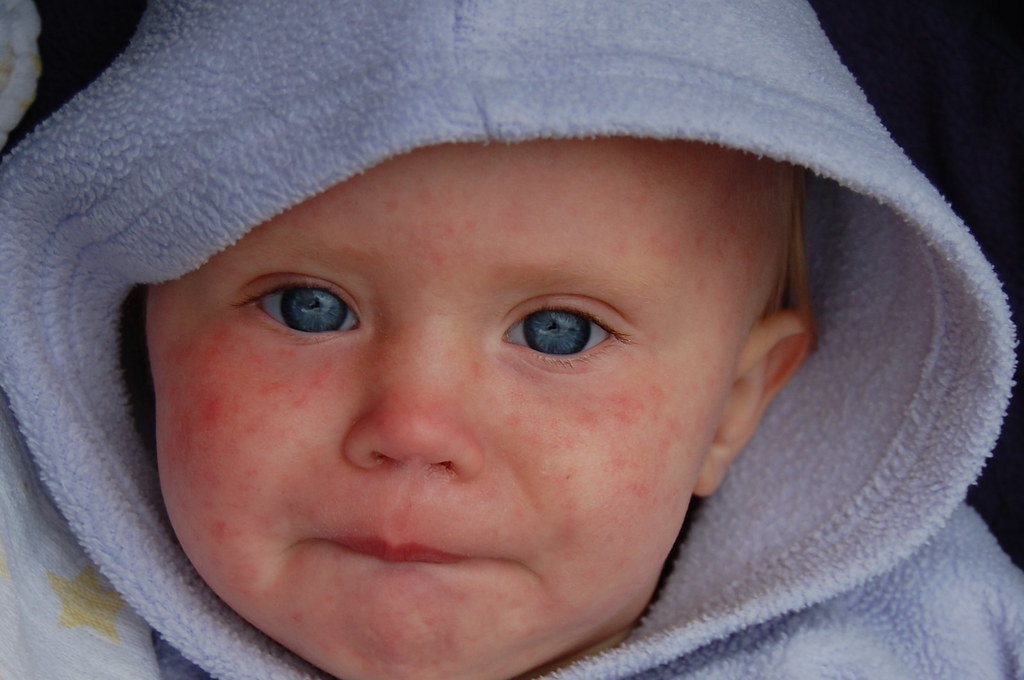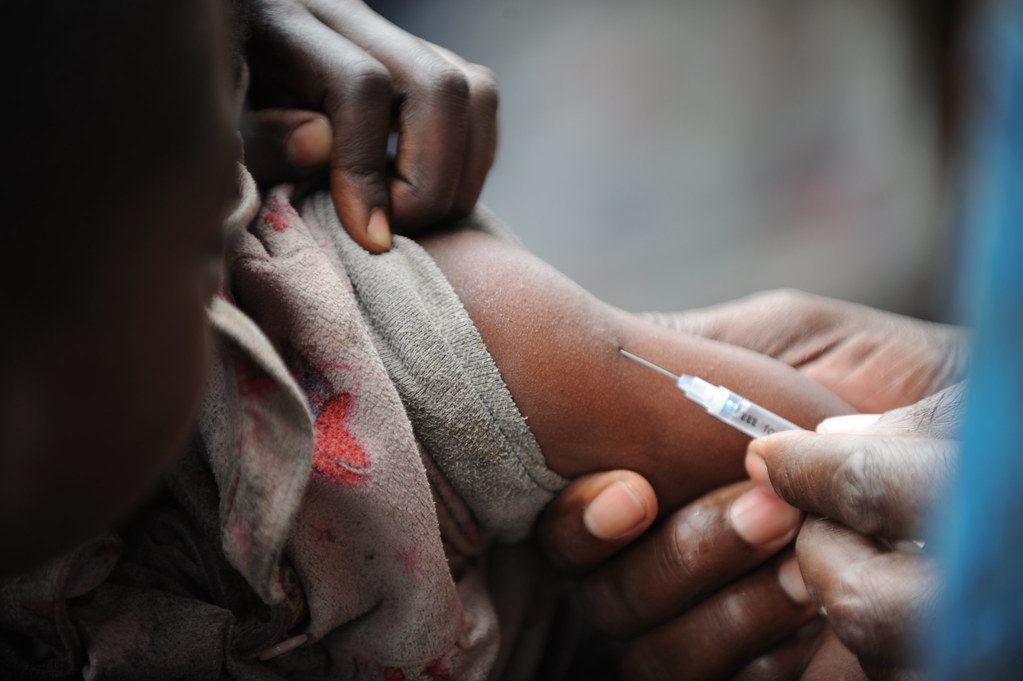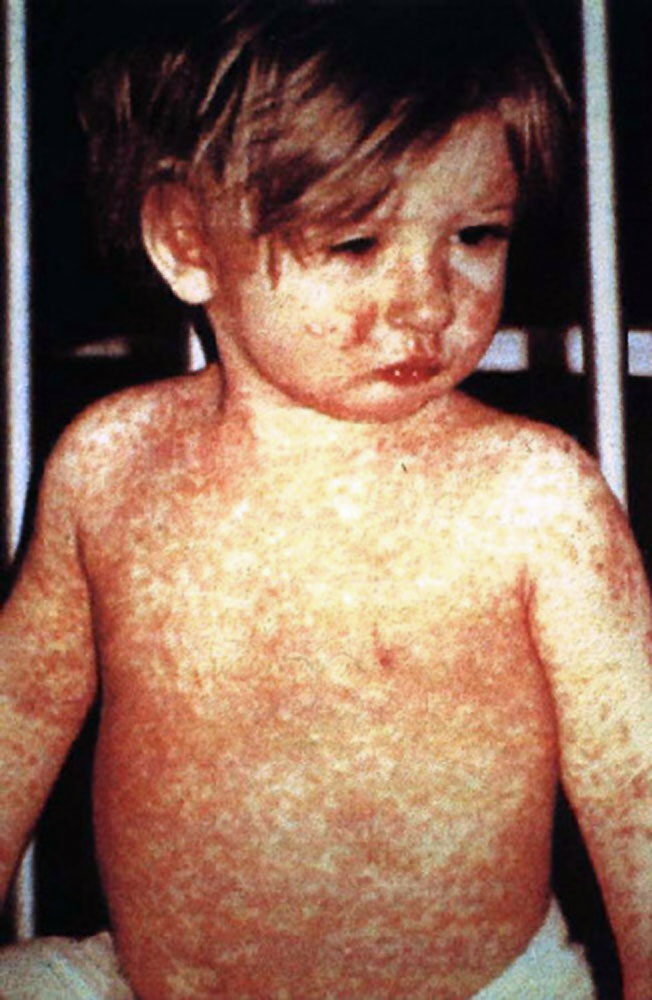
(Infant infected with measles, Source, by Dave Haygarth)
The Outbreak
On February 15th of this year, Vancouver health officials reported the city was facing a measles outbreak. Fast-forward nearly one month and Vancouver has experienced it’s 17th confirmed case of measles. With the re-emergence of a disease most dangerous to children, the elderly, non-immune, immunocompromised, the public has once more picked up the discussion on vaccination programs, specifically if the mumps, measles, and rubella (MMR) vaccine should be made a mandatory requirement for children attending elementary school.
The Wonder-vaccine

(Child receiving measles vaccine in DR. Congo, source, by Julien Harneis)
Before the vaccine was approved and began implementation in Canada from 1963-1964, measles outbreaks resulted in roughly 300,000 to 400,000 new cases annually. Compared to the less than 200 cases reported in 2015. Explicitly displaying today’s low prevalence of measles is not simply an inherent right of living in Canada. Rather, immunity through vaccination is a privilege allowing most Canadians to be worry-free as measles continues to be one of the leading vaccine-preventable causes of death in children worldwide according to the World Health Organization.

Figure 1. Canadian reported cases fo measles, pre and post vaccine program, source, by Canada Public Health Services
A Second Perspective
However, according to CTV Vancouver, anti-vaccination parents who argue against government interference in parental decisions have begun a petition titled ‘Maintain the right to choose what happens to your children’. One of the commentators mentioning in the article that she is a second generation “no-vaxx person” and that nothing has ever happened to her. Unfortunately, the commentator’s conclusions drawn from anecdotal evidence contradicts scientific data. The relationship between the introduction of the measles vaccine and significantly reduced incidences is clear, as evidenced by Figure 1. The commentator’s reported absence of infection is likely the result of most of the population around them being vaccinated and no longer viable carriers.
In 1998 Canada achieved measles elimination and a once largely prevalent and deadly disease with no known cure was completely eradicable. Most cases presently seen are transmitted through travelers exposed to measles in another area of the world, bringing it back to Canada, and infecting areas with low immunity. Unfortunately, the population most affected by measles are young children who have yet to receive their full dosage. Such spread is most often the result of a selfish or uneducated decision to forgo vaccination preferring to trust pseudo-science and conspiracy theories.
Shifting the Conversation
Perhaps it is time to shift the conversation’s focus from whether well researched, tested, and clinically observed vaccinations should be enforced by government to which vaccinations should be required. In the growing world of globalization and unparalleled human migration, society must reassess what is ethically correct. One’s freedom to make uneducated and potentially unfounded health decisions that put others at risk or to surrender such freedom in a rapidly globalizing world where infection of a disease not frequently seen in Canada could be a plane away.
By: Jonathan Kraft

(Child with characteristic measles rash, source, by Barbara Rice)
